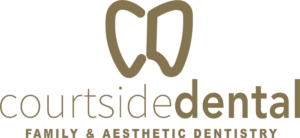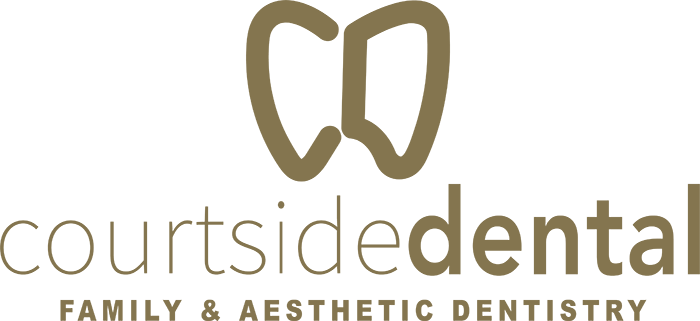
How You Can Prevent Teeth Grinding

Everyone at some point in their lives has clenched or ground their teeth. Maybe you noticed yourself doing it or the action was subconscious. Regardless, when it happens frequently enough, it can lead to certain oral complications if not treated by our Portage, MI, dentist.
Dr. Paul can examine your teeth and let you know if he finds obvious signs of teeth grinding, also known as . Causes and treatment for bruxism vary among individuals, but a popular next step after diagnosis is to prescribe a custom fitted night guard.
In addition to a night guard, here are other ways you can stop grinding or clenching your teeth.
What Is Bruxism?
This common condition describes the excessive grinding or clenching of teeth. Bruxism can occur either during the day or at night and sufferers are typically not aware of their behavior until symptoms are felt later on.
For example, someone who grinds their teeth at night may wake up in the morning with a headache or tooth pain and not know the immediate cause. Both adults and children can be which can range from mild to severe.
Signs you may have bruxism include:
- Tooth pain or sensitivity
- Pain or soreness in the jaw, neck, or face
- Worn tooth enamel
- Flattened, fractured, chipped, or loose teeth
- Dull headaches
- Jaw muscles that are tight, tired, or locked
- Sleep disruption that often results in fatigue
- Loud grinding or clenching noticed by a loved one
Why Grinding Happens
The reason behind a patient’s bruxism is not always clear. Most often, grinding or clenching happens due to stress or anxiety. Other known causes may be alcohol use, cigarettes, caffeine, sleep apnea, or a misaligned bite.
Talking with our dentist about your level of stress or lifestyle habits can help uncover the root cause of your bruxism. A more in-depth oral examination will also reveal any damage that has been done as a result of your teeth grinding.
Depending on the degree to which you grind or clench, restorative dental procedures, like dental crowns, may be required to strengthen weakened teeth. Most mild cases of bruxism do not lead to additional dental work, but when needed, our dentist will discuss a treatment plan with you.
Tips to Help You Stop Grinding Your Teeth
Whether it’s anxiety induced or the result of too much coffee, bruxism can be treated by our dentist and at home. Here are 4 tips that when practiced, can limit the frequency of how much you grind or clench your teeth.
1. Use a Custom Night Guard
This treatment option is best for patients who suffer from nighttime bruxism and grind or clench while asleep. By wearing the custom-made night guard provided by our dentist, you effectively put a barrier between your top and bottom teeth so they can’t touch. Because of this, the act of grinding and clenching becomes difficult.
also help to cushion the jaw muscles if you do clench during the night. When worn, the night guard lessens the tension put on the jaw and prevents pain in the area or loss of tooth enamel.
2. Limit Your Consumption of Caffeine and Alcohol
While both caffeine and alcohol can be enjoyed in moderation, their consumption can increase the risk of bruxism in some individuals. Take note of how much you have on a regular basis and if needed, cut back to avoid unwanted tooth damage, headaches, jaw pain, and more.
Be sure to also ask our dentist about having a night guard created to give your teeth added protection while you’re sleeping. This will at least prevent grinding or clenching if you do decide to have an extra cup of coffee during the day.
3. Become Aware of Daytime Grinding or Clenching
For those who have a habit of unknowingly grinding or clenching during the work day, try paying attention to when it happens. You might come to realize that you’re clenching a lot when you shouldn’t be and that you have the power to stop if you become aware of what you’re doing.
When you catch yourself grinding or clenching, place the tip of your tongue between your teeth. Practicing this will train your jaw muscles to relax. Don’t get discouraged if it takes a while for this to set in. Just keep trying and it’ll become easier. Your jaw and teeth will thank you!
4. Practice Relaxation Techniques Before Bed
Are you more stressed or anxious than usual? There’s a high chance those feelings are spilling over into your sleep and causing you to grind or clench. To relax before climbing into bed, we recommend trying a stress reduction technique.
This can be meditation, yoga, listening to music, light exercise, or something else. As long as it puts you at ease and calms you down, it should help you sleep more soundly and reduce your bruxism.
Make an Appointment With Dr. Paul
It is possible to reduce or eliminate teeth grinding and clenching. With the help of our dentist in Portage, MI, your smile can be well protected thanks to a custom-made night guard. Call Courtside Dental today at (269) 327-1011 to request an appointment.
This blog post has been updated.

